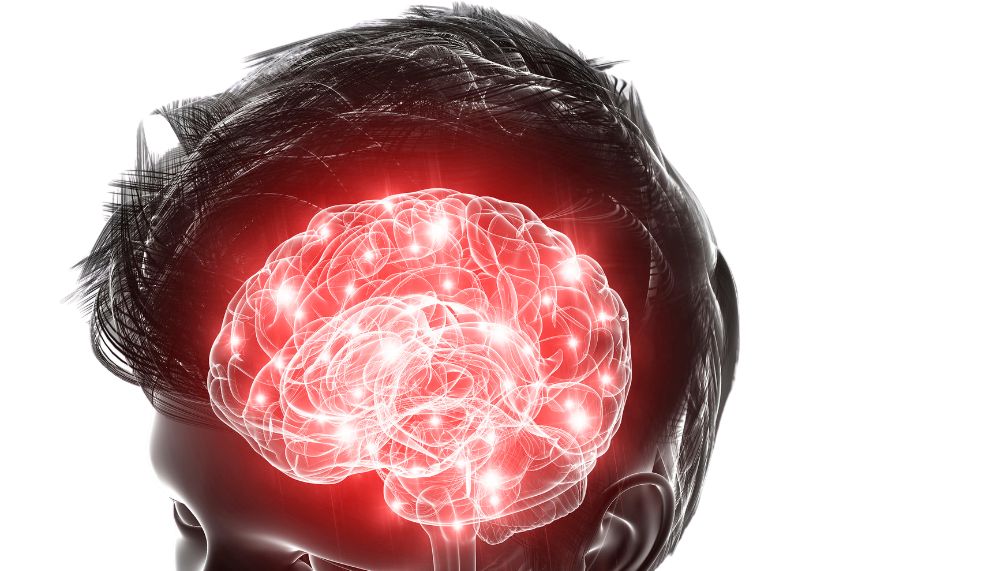Long Beach Workplace Brain and Head Injuries Lawyer
Every day, many people working in Long Beach, CA, and surrounding areas sustain injuries at work. While some of these incidents are minor and easily addressed with basic first aid, others are far more damaging, some resulting in permanent harm. When workplace head and brain injuries occur, victims can face extensive restorative treatment, many disruptive and painful symptoms, and uncertain futures. The human brain is incredibly complex but highly vulnerable to physical damage.

Representing Workplace Head and Brain Injury Victims in Long Beach, CA
If you or a loved one recently sustained a head or brain injury at work or while performing your job duties outside of your workplace, you likely have grounds to seek workers’ compensation benefits for the injury. However, navigating the workers’ compensation claim process is more difficult than many injured workers expect. For example, some victims of head and brain injuries are so severely injured they must rely on close friends and family members to manage their legal affairs while they are incapacitated. Additionally, brain injury claims tend to involve substantial medical treatment costs and long-term damages. As a result, insurance carriers may try to avoid as much liability as possible for this severe injury.
Pratt Williams is a team of experienced attorneys capable of providing the detail-oriented and compassionate legal counsel you need after sustaining a head or brain injury at work in Long Beach. Our team has assisted many past clients in determining their best recovery options following these injuries, and we can leverage this experience on your behalf to help with your recovery. A Long Beach workplace brain and head injuries attorney is the ideal asset to have on your side when you must file a workers’ compensation claim for a workplace injury.
Common Causes of Workplace Head and Brain Injuries
Some industries and workplaces are more hazardous than others, and many people working throughout the Long Beach, CA, area face many dangers at work every day. Unfortunately, it’s also possible for severe head and brain injuries to occur in seemingly safe workplaces like office buildings. Head and brain injuries at work are most common in construction, manufacturing, commercial agriculture, and utility services. A few of the most commonly reported causes of workplace head and brain injuries include:
- Falls. The Occupational Safety and Health Administration (OSHA) cites falling incidents as a leading cause of serious and fatal workplace injuries throughout the United States annually. A fall can easily result in a severe head or brain injury and other injuries such as broken bones and spinal cord damage.
- Vehicle accidents. Many people must drive every day as part of their job duties. Therefore, a vehicle accident that happens while an employee is driving for work qualifies as a workplace injury. Traumatic brain injuries and other head injuries are commonly reported in all types of vehicle accidents in California each year.
- Chemical exposure. While it’s possible for a head or brain injury to occur from physical trauma, it is also possible for a person to sustain brain damage from exposure to certain chemicals. For example, breathing in certain chemical fumes can quickly cut off oxygen flow to the brain and cause severe brain tissue damage.
- Dropped and falling objects. Some workplaces, such as construction sites and factory floors, require employees to wear hard hats due to the risk of head injuries from falling objects. However, even the highest-quality hardhats can only mitigate the damage a falling object can cause, especially if it is a heavy object.
Regardless of how your head or brain injury happened, if you sustained the injury while performing your job duties, you can file a workers’ compensation claim to secure benefits that can assist with your recovery.
Filing a Workers’ Compensation Brain Injury Claim in Long Beach
California law requires all employers to have workers’ compensation insurance, even if an employer has just one employee. When an injury occurs at work, the injured worker must notify their employer of the incident and request the materials they need to file their workers’ compensation claim. The employer may not interfere with the employee’s claim in any way, nor may an employer take any punitive action against an employee who seeks to file a workers’ compensation claim.
Unfortunately, not all employers abide by their legal obligations under California’s workers’ compensation laws. Workers’ compensation coverage is a form of insurance, and an employer pays an insurance premium each month to maintain coverage for their employees. When an insurance carrier must address many claims from a policyholder quickly, this increases the insurer’s perception of risk for the policyholder, potentially leading to more expensive coverage in the future. As a result, some employers attempt to dissuade injured workers from filing workers’ compensation claims to keep their premiums low.
Many victims of workplace injuries in California not only contend with the pain and recovery and less-than-agreeable supervisors as they attempt to file their workers’ compensation claims but also have problems with the claim process itself. Therefore, if you or a loved one recently suffered a head or brain injury at work, you should speak with an experienced lawyer about your case for the best chances of success.
How Can an Attorney Assist Me With a Workers’ Compensation Claim?
Navigating the workers’ compensation claim process is very difficult without assistance from an experienced attorney, especially when the claimant is struggling in the aftermath of a serious head or brain injury. A Long Beach workplace brain and head injuries attorney is an excellent resource for anyone in this situation. The right attorney can answer the claimant’s most pressing legal questions and guide them through the claim process. In addition, having an attorney prepare your workers’ compensation claim avoids the risk of making mistakes in your claim paperwork that can delay your case’s progress.
After helping you file your workers’ compensation claim, your attorney will then address any necessary correspondence with the insurance carrier on your behalf. Your attorney can ensure the workers’ compensation insurance carrier offers a fair settlement that adequately addresses your situation under your employer’s policy terms.
Ultimately, every workers’ compensation claim is unique, and every claimant will face different challenges as they work toward recovery. Pratt Williams offers client-focused legal representation to every injured worker we represent, helping each client develop a unique legal strategy for overcoming their damages. However, many head and brain injuries are serious, causing complex symptoms and long-term complications that workers’ compensation benefits may not fully address.
Possible Complications From Head and Brain Injuries
The human brain is responsible for controlling every conscious and unconscious bodily process. The victim faces an uncertain future when the brain sustains any type of injury. One of the most difficult aspects of treating head and brain injuries is the unpredictable nature of these injuries. Two people could suffer seemingly identical head injuries and have completely different recovery experiences. Victims of head and brain injuries at work can expect medical expense coverage and ongoing disability benefits from their workers’ compensation claims. Still, there are limits to the benefits that workers’ compensation can offer.
Many people who sustain head and brain injuries face long-term medical complications. Some victims develop permanent disabilities that prevent them from earning as much income as they did previously. Others are unable to work at all and require ongoing medical care to survive after their injuries. While California’s workers’ compensation laws generally prevent injured employees from filing civil claims against their employers for workplace injuries, an injured employee can have grounds for legal action beyond a workers’ compensation claim.
Filing a Personal Injury Claim for a Head or Brain Injury in California
Workers’ compensation insurance typically shields employers from civil liability for their employees’ damages. However, if an employer does not have workers’ compensation insurance as state law requires, an injured employee has the right to file a personal injury claim against them to seek compensation for damages from a workplace injury. Alternatively, an injured employee could also have grounds for civil action against their employer if the employer caused their injury intentionally in any way.
Workplace head and brain injuries may also occur due to the actions of third parties unrelated to the victim or their employer. For example, many people must travel for work and work in various locations throughout their workdays. It does not matter if an injured worker was present at their designated workplace when their injury occurred; as long as they were performing job duties when the injury happened, they have the right to file a workers’ compensation claim. However, if a third party caused their injury, they can file a third-party personal injury claim against them in addition to their workers’ compensation claim.
Compensation for a Workplace Head or Brain Injury
Workers’ compensation insurance in California can help injured workers recover with two forms of benefits. First, if their employer’s policy covers the worker’s injury, the insurance company pays for all medical care the worker needs to heal from their injury and/or manage their symptoms until they reach maximum medical improvement. An insurance company might deny coverage if an employee caused their injury through a serious violation of workplace policy or egregious negligence, such as working under the influence of alcohol or drugs.
Second, workers’ compensation can provide ongoing disability benefits when an injured worker cannot work due to their injury. Many workplace head and brain injuries will demand extensive recovery time, during which victims cannot work and earn income. When workers’ compensation insurance awards disability benefits, the claimant will receive up to two-thirds of their average weekly wages weekly. Benefits last for up to 104 weeks in most cases, but some claimants may for more extensive disability benefits due to the severity of their injuries.
These workers’ compensation benefits can make a recovery from a brain or head injury much easier, but these injuries often entail extensive medical treatment and pose lasting harm to victims. When you have grounds to file a personal injury claim in response to your workplace head or brain injury, success can mean a far more extensive recovery than workers’ compensation can provide, allowing you to secure damages the insurance company won’t cover. In California, plaintiffs in personal injury claims have the right to seek compensation for:
- Medical expenses, including those incurred immediately following a workplace head or brain injury, and ongoing treatment costs the victim will incur in the future for managing their symptoms and restoring functionality. While workers’ compensation insurance offers extensive coverage of medical care for injured workers, any necessary treatments or therapies the victim requires that are not covered by workers’ compensation can be included in a personal injury claim.
- Lost income. Workers’ compensation benefits can cover up to two-thirds of the victim’s average weekly wages after their injury, but there are limits on how long these benefits can continue. A personal injury claim allows the plaintiff to seek compensation for any lost income not covered by workers’ compensation insurance and compensation for lost earning capacity if they cannot return to work.
- Pain and suffering. California law allows personal injury plaintiffs to seek non-economic damages for physical pain and emotional distress. There is no limit to the amount a plaintiff may seek in pain and suffering compensation in their personal injury case. As a result, plaintiffs who sustain life-changing injuries are likely to secure substantial recoveries.
Most personal injury claims end in settlement negotiations, but a case can go to court if the defendant denies liability or refuses settlement. Some head and brain injury victims will struggle with their workers’ compensation claims, while others face difficult personal injury proceedings in addition to their workers’ comp cases. Your situation is likely to entail a wide range of unique variables, and it’s essential to secure legal counsel you can trust to help you reach the best possible resolution to your situation.
Pratt Williams offers compassionate and client-focused legal counsel to every client we represent. To discuss your legal options with a Long Beach workplace head and brain injuries lawyer, contact us today and schedule your consultation with our firm.




